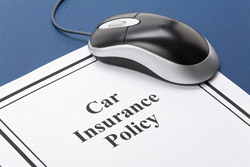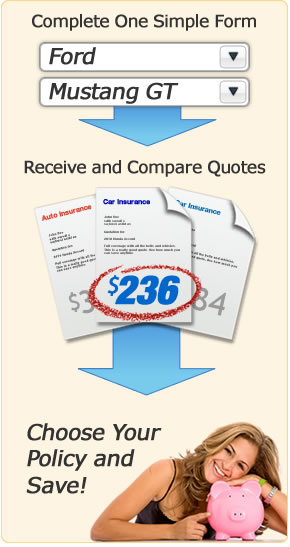
How to Insure your Hummer H1 on a Tight Budget
If finding the lowest rate on car insurance was easy, most people would have no trouble paying less. But the reality is, you probably don't enjoy it and you think it costs too much. You probably feel the same way when trying to find cheaper coverage for your Hummer H1.
Step One: Compare Online Rate Quotes
The old way of buying car insurance was to make multiple trips to various local agents and get strong armed into a policy that didn't necessarily fit you. But now you can eliminate that hassle and buy online!
Comparing insurance rates for a Hummer H1 only require you to enter your information once. You'll receive multiple quotes and can easily compare rates.
To start saving, have your current policy handy and click the link below. Our short form makes it easy to enter your information and compare rates.
Important Tip! In order to accurately compare rates for your H1, it's critical that you use the same limits and deductibles for liability and physical damage coverages like comprehensive and collision. If you use different limits, you will not be able to accurately compare rates between carriers.
Step Two: Insider Tips for Finding Cheaper H1 Insurance
How much impact insuring your Hummer has on your wallet is controlled by many different factors. Here are some ways to reduce the negatives and improve the positives.

- Since your vehicle is higher performance than average, you can expect to pay a little more for coverage. To keep your costs lower, you may consider trading for a lower performance vehicle that has more moderate rates.
- One of the best ways to lower your insurance rates is to raise your credit score. Check your rating once a year and make sure to address any problem areas immediately.
- If you're willing to shoulder more of the cost at claim time, consider raising your comprehensive and collision deductibles. This can easily cut 30% or more from your policy premium.
- Insurance companies will charge you a little higher rate on an SUV due to the fact that most have larger engines, four wheel drive, and more complex drive trains.
- A claim-free discount can help keep your rates down, so don't file claims that are only marginally more than your deductible. You're better off keeping the discount.
- Members of many professional organizations can receive discounts on car insurance, and if you're a senior citizen, that could earn you an additional discount.
- Speeding tickets and other violations can negatively impact your insurance rates for up to three years. Get too many tickets and you'll be shopping for a new car insurance company.
- If you've recently completed a driver's training or safety course, tell your insurance company. You may qualify for a 5-10% discount.
- If switching companies, always have the effective date of the new policy be identical to the expiration date on the old policy. This prevents a lapse in coverage and companies charge higher rates if you have any lapses.
- The less chance of injury to passengers in an accident means lower insurance rates. Vehicles with safety features like side-impact airbags, head injury protection, antilock bracks and traction control generally will be cheaper to insure.
- Auto theft is a big problem that costs us all money, but if your car is on the list of the most frequently stolen autos, you might be paying a little extra because of the temptation to thieves.
- If your insurance company allows driver-specific car rating, you can save money by rating any teenage drivers on low profile vehicles with either no physical damage coverage or very high deductibles.
- If you own a home, you may get a break on your car insurance. Home ownership demonstrates financial responsibility.
Step Three: Purchase a New Policy
Now that you hopefully have several rates to compare and have made any changes needed to your individual coverages, you can choose the best company to insure your H1 with.
You can cancel a policy at any time, but just remember to make the effective date of the replacement policy the exact same as the date you cancel your old policy. You do not want any gaps in coverage between policies.
Any time you buy a new vehicle, make sure you have car insurance in place, either from an existing policy or a new policy that you purchase from the dealership floor. Your existing car insurance policy will give you some coverage if you buy a new or used H1, but unless you are already paying for full coverage, you won't have it until you add the vehicle to your policy.
All states require you to keep the proof-of-insurance or financial responsibility card in your vehicle at all times. Failure to produce this document can result in a citation. Depending on your state's statutes, you may be required to file an SR-22 form if you've been convicted of an uninsured accident, DUI or license suspension. Make sure your new company is aware of this requirement and files it promptly.
More Educational Resources
The Insurance Information Institute has a great resource of car insurance articles where you can learn more about coverages and money saving tips. Visit iii.org.

